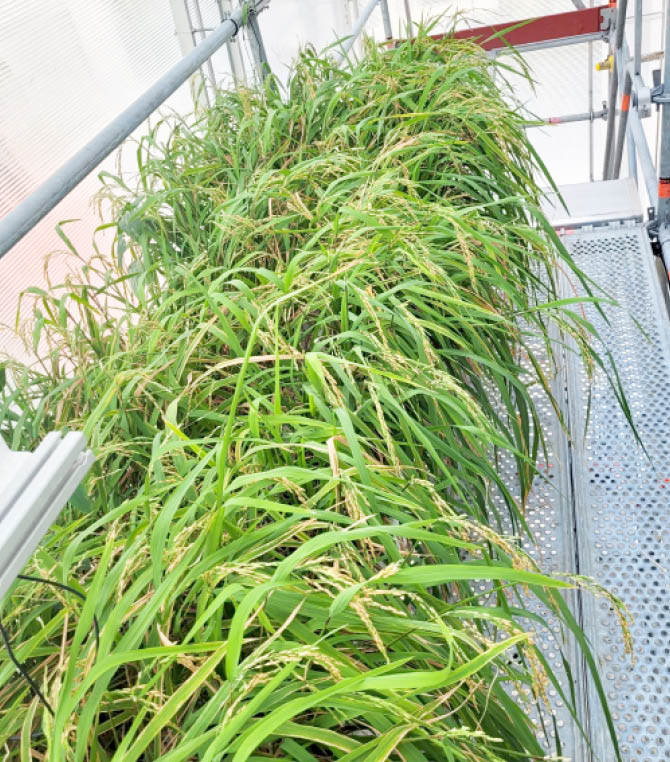AGRO SOLUTIONS: Search for high yield: Singapore harvests rice from vertical farm
Singapore has harvested the first Temasek rice, a hardy and climate-resistant variety grown in pilot vertical farm. The variety was developed by researchers at the Temasek Life Science Laboratory. It is a dwarf type with a yield potential of up to 6 tons per hectare. It is tolerant of drought, can survive under floodwater for […]

Rice grown in a vertical farm
Singapore has harvested the first Temasek rice, a hardy and climate-resistant variety grown in pilot vertical farm.
The variety was developed by researchers at the Temasek Life Science Laboratory. It is a dwarf type with a yield potential of up to 6 tons per hectare. It is tolerant of drought, can survive under floodwater for up to 2 weeks, and is highly resistant to bacterial and fungal diseases.
- Kwankwaso, ministers, others storm Kano as AGF Idris marries off daughter
- NEF’ll only support candidate with will to tackle insecurity – Baba-Ahmed
Although grown commercially in Indonesia, the Temasek rice harvest in Singapore will only be used for research and development on growing crops in urban farm settings.
Singapore is not usually associated with rice production, much less with the development of new varieties. So it may come as a surprise that the highly urbanised city-state is the birthplace of a sturdy high-yielding rice variety designed to cope with extreme weather conditions brought on by climate change.
Known as Temasek, the variety was developed by researchers at the Temasek Life Science Laboratory (TLL) in Singapore. It is a dwarf type with a yield potential of up to 6 tons per hectare. In addition, Temasek is a low-input variety and can be grown with fewer agricultural resources. Although Temasek is a tough plant in the field, its grain is soft, tasty, and rich in dietary fiber, and it has a good aroma when cooked.
In 2013, the Singapore-based Lee Foundation and the International Rice Research Institute (IRRI) launched a scholarship programmeto educate and train a new generation of young rice scientists and researchers to help feed Asia in the future.
Known as the Lee Foundation Rice Scholarship Programme, it offers South and South-East Asians in the early stages of their careers a unique opportunity to acquire an excellent education from leading academic institutions in areas such as gene discovery and bioinformatics, modern rice breeding, rice systems of the future, and economics and policy. The programme has already granted six postdoctoral fellowship positions, two MS degree scholarships, and 30 PhD scholarships to students from nine countries in South and South-East Asia.
Singapore could play a leading role in regional food security and help stabilise rice prices if it took up the opportunity to host a rice futures and a spot exchange, which includes the actual buying and selling of rice for immediate delivery.
In the report, Never an Empty Bowl: Sustaining Food Security in Asia, produced by a high-level international task force on rice-based food security, the need for a rice futures market is highlighted.
Source: RiceToday, an international magazine dedicated to the world of rice.
